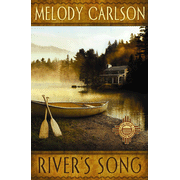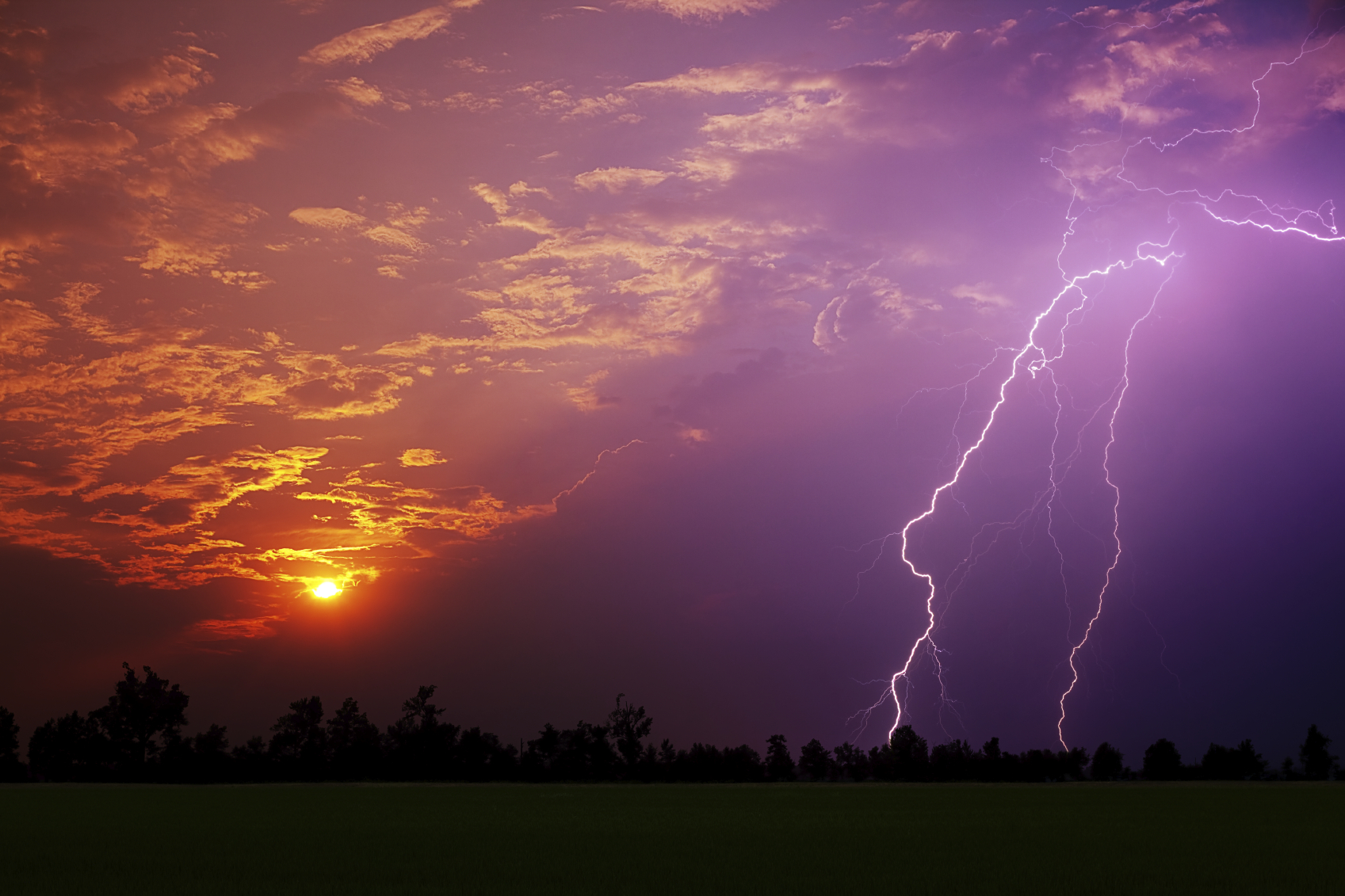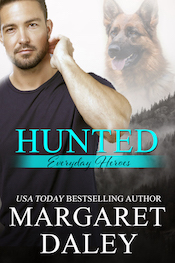 This week I’m hosting Kit Wilkinson with Mom in the Making and Melody Carson with River’s Song. If you want to enter the drawings, please leave a comment on one of the post during the week with your email address. I will not enter you without an email address (my way to contact you if you win). If you don’t want to leave an email address, another way you can enter is to email me at margaretdaley@gmail.com. The drawings end Sunday (July 24th) evening.
This week I’m hosting Kit Wilkinson with Mom in the Making and Melody Carson with River’s Song. If you want to enter the drawings, please leave a comment on one of the post during the week with your email address. I will not enter you without an email address (my way to contact you if you win). If you don’t want to leave an email address, another way you can enter is to email me at margaretdaley@gmail.com. The drawings end Sunday (July 24th) evening.
Interview with Melody Carson:
1. What made you start writing?
I’ve written my whole life (poetry, journaling, letters, newspaper…) but I began writing seriously (for publishing) in my mid thirties. Although I’d often been told that I was a “gifted” writer, I never took my writing seriously—or else I took this gift for granted. When something comes easily to you, it’s easy to brush it off. But finally, just as my sons were preadolescent, it was as if I was going to explode or implode if I didn’t sit down and write a book. So that’s what I did. I pulled out a yellow legal pad and while caring for a bunch of pre-schoolers in my in-home child care center, I hand-wrote my first book (a few pages at a time) while the youngsters were sleeping. I progressed from legal pad to typewriter to computer…writing my heart out as I spun stories. It was almost like I couldn’t stop writing. I’d finish one book and start another without a clue as to what I’d do with these books because marketing (back then) was a complete mystery to me.
2. How long have you been writing? When did you sell your first book?
It’s been close to twenty years since I started writing “seriously.” Like I said, I wrote book after book, building a little stockpile, but in those early days I could sell short stories, but I couldn’t contract a single book. I connected with an editor (at Thomas Nelson) who loved my work, but she finally decided that fiction just wasn’t selling in the Christian market. People in publishing seemed to like fiction, but the theory was that no one was buying it. “Can you write a non-fiction book?” she asked me one day. I told her I thought I could and decided to write about having a day care center in your home (since I’d done that and I’d been told to write what I knew) and consequently that was the first book I contracted. Within a year, I had contracted six more books with Bethany—all fiction. The rest, as they say, is history.
3. How do you handle rejections?
No one likes rejection, but early on when I got a lot of it (enough to wallpaper a bathroom) I tried not to dwell on it. My revenge for another rejection letter was just to work harder, write more…I thought, eventually the publishers are going to come around to fiction. Now, years later and at this stage of my career, rejection is more like the exception. However, a bad review can feel like a rejection to me. And my way of dealing with poison pen reviews is to avoid reading reviews altogether—good or bad. Some authors don’t get this. But if a review is good, I can get a false sense of security and if a review is nasty, it can undermine whatever I’m working on. I’m glad people feel free to write “honest” book reviews, but as an author (and for my sanity) I don’t feel compelled to read them. I’d rather use that time doing something fun!
4. Why do you write?
I write because I love to write. I would write (and I did) even if no one published or read me. I simply love words, language and, in particular, storytelling. I always have. I imagine that some of my ancestors (thousands of years ago) were the ones sitting around the fire telling tales to the others.
5. What would you be doing with your free time if you weren’t writing?
I like the outdoors (camping, biking, hiking…) and I like to garden and read. My husband and I enjoy traveling in our motorhome and seeing new places. We also spend a fair amount of time at our little beach cabin. And when I’m not amidst my own writing project, I like to read. And sometimes, I just sit quietly in our sunroom and simply quiet my mind and daydream. I think giving your brain a chance to rest and be still is important to writing.
6. What are you working on right now?
I just finished my 2012 Christmas novella (Baker/Revell). I do one each year—always in summer, which is ironic. I’ve done about eight or more of these and I thoroughly enjoy them. The one I just finished is my favorite one so far. I can’t wait to hear what my editor thinks of it.
7. Do you put yourself into your books/characters?
I’m sure that bits and pieces of myself sneak into lots of characters. Sometimes I’m aware of it and sometimes not. It’s always interesting to hear how someone I know perceives this. Sometimes they see snippets of me that I don’t think are there. Writing is so subjective and sometimes there are things between the lines that we figure out later. However, I think it would difficult to create a main protagonist and not feel like a part of me was in there somewhere. I think a connection like that, between author and character, is what makes a character come to life.
8. Tell us about the book you have out right now.
River’s Song is the lead book in a semi-historical trilogy (Abingdon). Set on the Siuslaw (an estuary river in Oregon) it’s the story of a Native American descendent that begins in the early fifties. In midlife frustration, Anna Larson returns to her roots and attempts to restore a family property; understand her past…and find herself. With a supporting cast of characters and a beautiful location, Anna begins to see the healing properties of the river and decides to figure out a way to share it with others. Thus the Inn at Shining Waters is begun.
9. Do you have any advice for other writers?
Give yourself permission to write badly. Don’t constantly self-edit and shut down the writing process. Join a good critique group. Attend writers’ conferences. Read the kinds of books you aspire to write. Develop thick skin. Do your market research. And don’t give up! Beyond that, I’d say just write and write some more. The more you work at anything, the better you get.
10. How important is faith in your books?
Because faith is part of my life, I like to think it carries over into my books. However, with some books (like this series) the faith message is fairly subtle. I hope that the reader closes the book and thinks “God is good.” And perhaps they will have a desire to know him better. Whereas in a teen novel (especially one that tackles tough issues) I will be much more upfront and somewhat evangelical—because I feel teen readers need substantial answers to their difficult life questions.
11. What themes do you like to write about?
Oh, my—I think I have written about just about everything. In particular I enjoy writing women’s stories about life challenges or reinventing themselves. As a reader, I love stories about women and relationships and everyday struggles. And that’s probably why I try to write those kinds of books. In some ways, “fiction” seemed more real to me than nonfiction. For that reason I’ve tackled all sorts of themes…everything from mental illnesses to lighthearted stories (aka chick lit).
12. What is your favorite book you’ve written and why?
Well, that’s a bit like asking a mother who her favorite child is. But one of my favorite books is a women’s novel called Finding Alice. There are several reasons—from a technical perspective it was the first book I’d ever written in present tense/first person. But that was simply how the book was begging to be written. It’s also close to my heart because it’s about a young woman’s struggle through schizophrenia, and my son was treated for this disorder when he was twenty. At the time (12 years ago) so many of my friends and family didn’t understand schizophrenia, and I got tired of explaining that my son wasn’t “dangerous” and that this was a treatable illness (especially with early intervention) so I just decided to tell a story to make a point. And since people weren’t gathering around the fire pit to listen, I wrote a book.
13. What is your writing schedule like?
I treat writing like a fulltime job. I usually go to my writing studio (which is separate from my house) around 9am and write until around 5pm (on week days). But there are no firm fast rules—part of the beauty of being self-employed. If I want to take a day…or a week or a month off, I can. If I’m crunching on a deadline, I might work a night or two, or into the weekend. But for sanity’s sake I try not to write more than 40 hours a week. And sometimes I get a book idea in the middle of the night and I’ll slip out of the room and jot down a story. So, really, it’s a somewhat flexible schedule.
To learn more about Melody Carlson, check out her website www.melodycarlson.com/ and to get on her mailing list and participate in contests, contact her via email at melodycarlson@gmail.com



